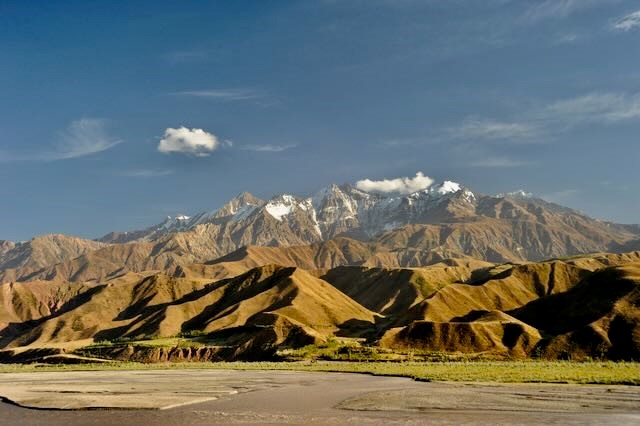attempto online - Research
02.03.2023
Topographic processes help understand climate change
Understanding the topography of our Earth and its development over millions of years is crucial to understand future developments of the Earth system, such as climate change. Todd Ehlers, Professor of Geology at the University of Tübingen, comes to this conclusion in a perspective article in the journal Science. He was invited to contribute the piece in response to research that discusses a new computer-model reconstruction of global topography over the last 100 million years.
Earth’s topography is highly dynamic, from the seconds it takes a sand grain to roll downhill to the tens of millions of years for a mountain to disappear by erosion. Todd Ehlers discusses how the evolution of Earth's topography over long timescales has influenced the planet's atmosphere and biosphere, creating numerous examples of alternative Earths', where conditions were very different from today.
Some of those alternative Earths could be part of our future as the planet continues to change as a result of human activity and increased carbon emissions to the atmosphere.
Processes like the plate tectonic shifts which create mountains, the erosion of the exposed rock or chemical and biotic weathering are vital to creating a complex web of interactions between the Earth's surface, atmosphere and ocean chemistry. Those interactions help to create and sustain the planets' varied biosphere, as well as giving us our air, water, food and energy supplies.
“I was pleased to contribute this perspective piece to Science in support of this fascinating new model developed by Tristan Salles and coauthors”, he says. “It offers valuable new insight to the complicated interactions between geological, biological and atmospheric processes which have shaped the world we live in.
In order to build on its insights, researchers will need to work together to make detailed new observations of many of the processes it simulates. No single model can ever simulate every process, and new work at the local and global level on specific areas will help fill in some of the blanks and lead to more effective models in the future.”
In April Professor Ehlers will join the University of Glasgow as the new head of the “School of Geographical and Earth Sciences”.
Based on a release of the University of Glasgow
Publication:
Landscapes through time, Todd Ehlers, Science, Vol 379, Issue 6635, pp. 879-880, https://www.science.org/doi/10.1126/science.adg5546
Contact:
Prof. Todd Ehlers
Universität Tübingen / University of Glasgow
todd.ehlers@uni-tuebingen.de

